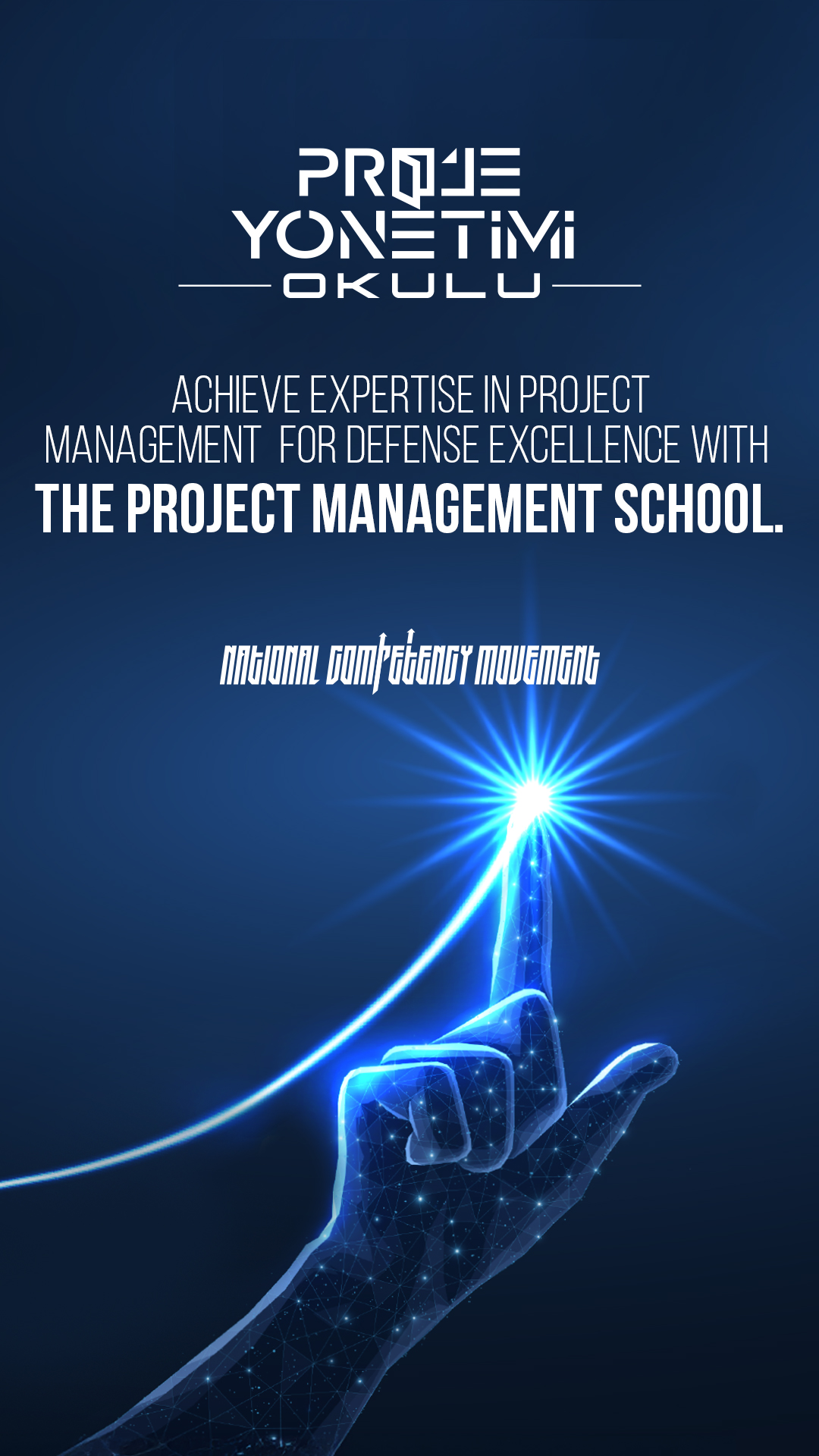
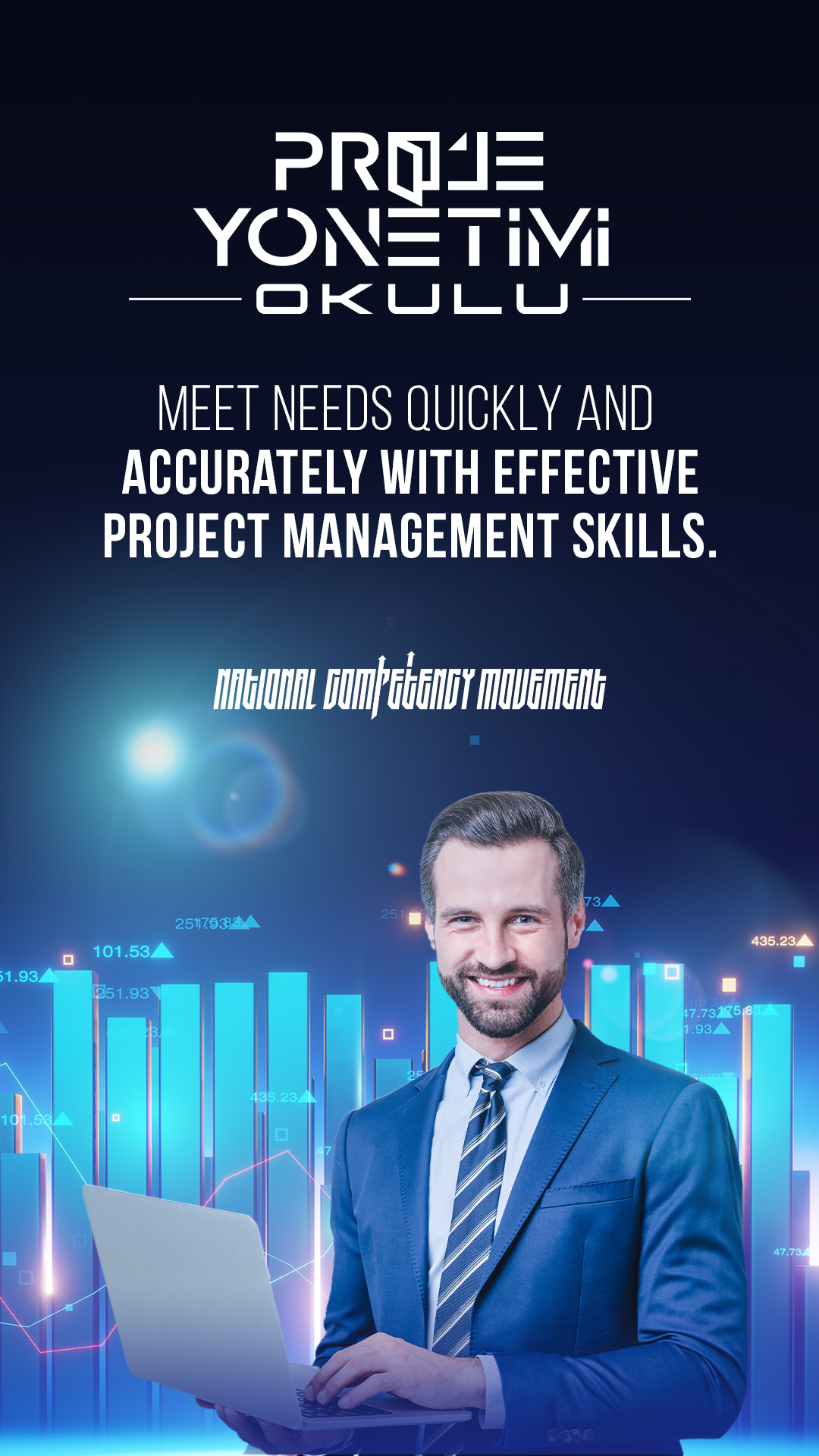
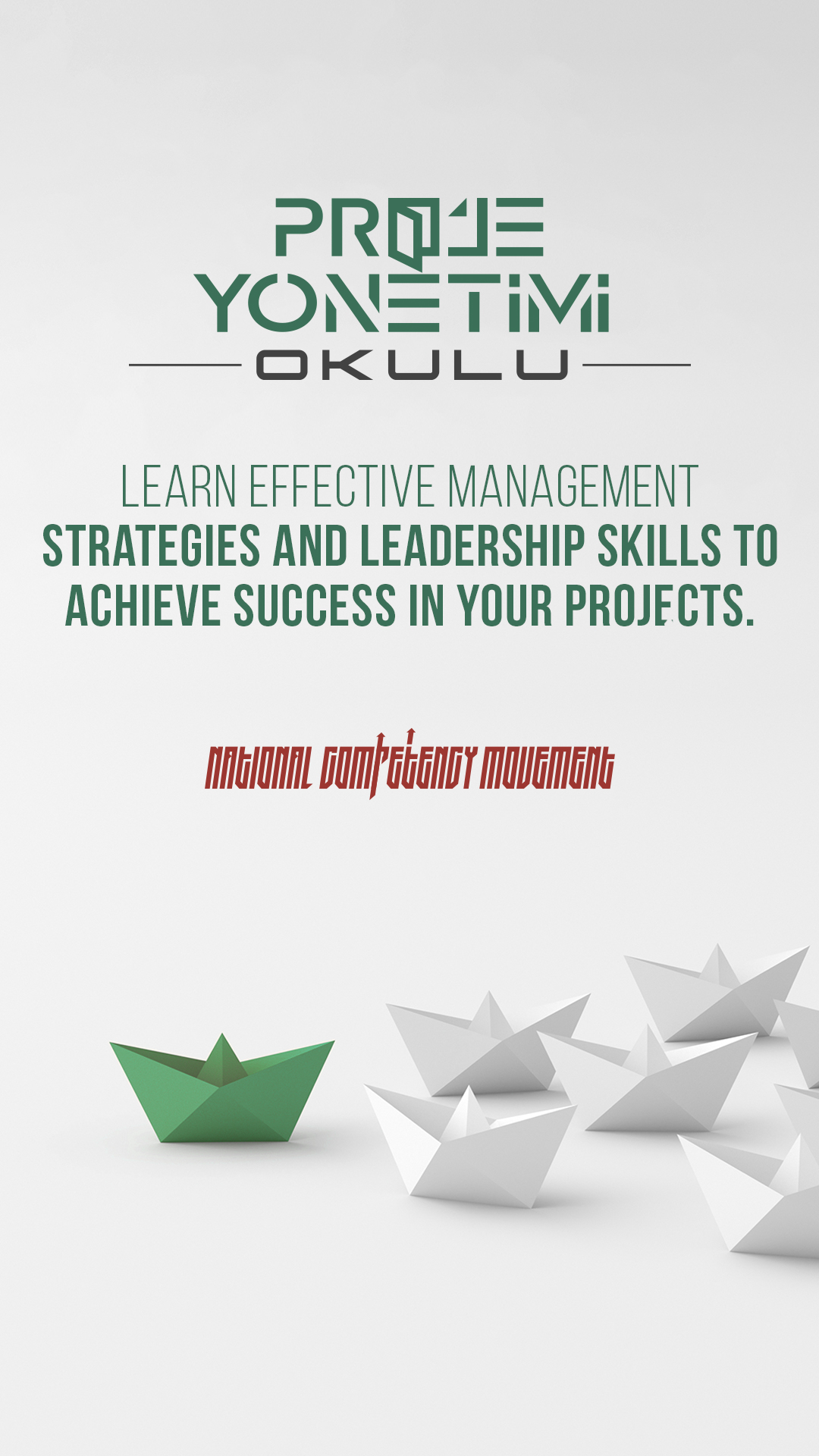
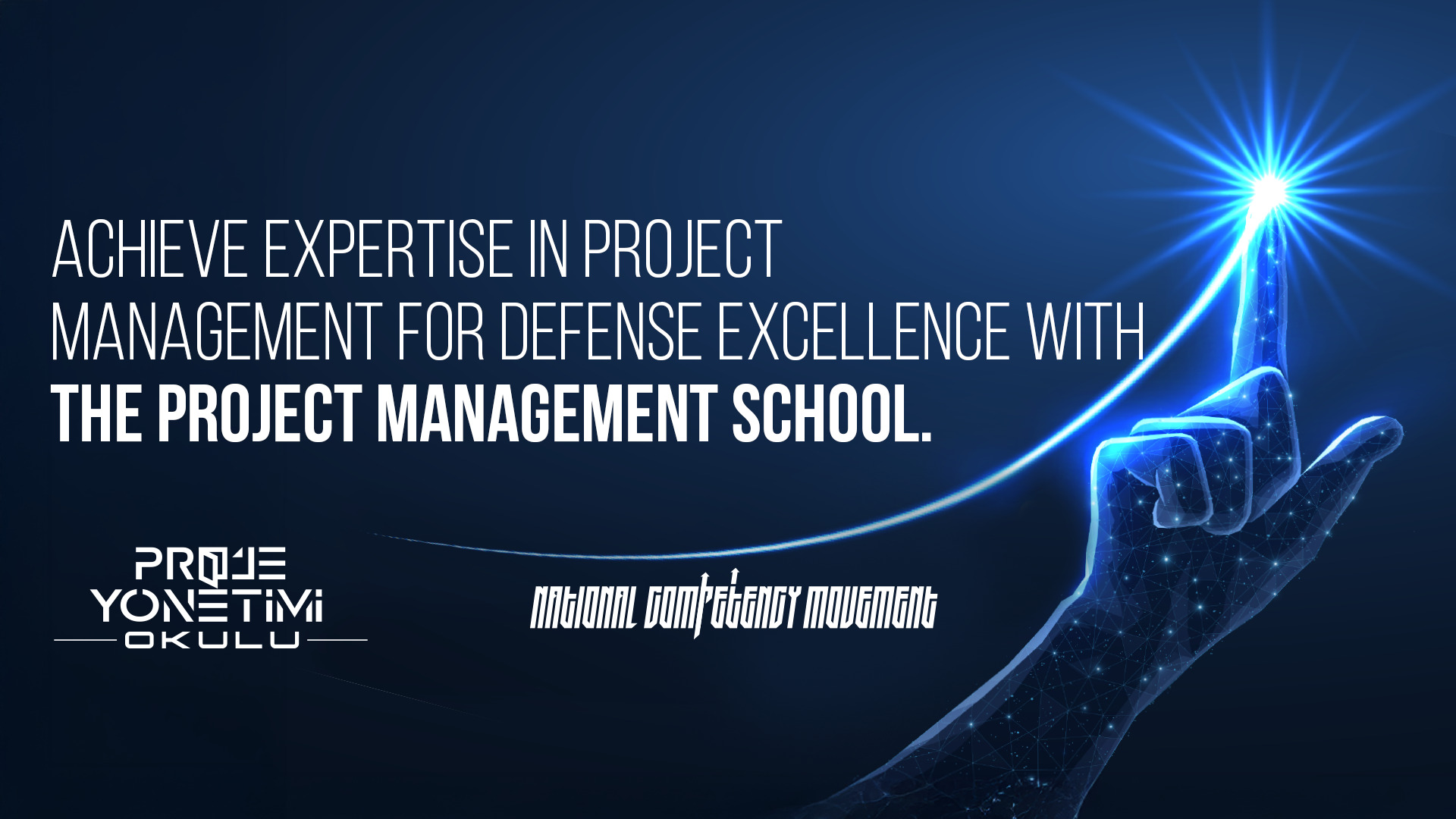

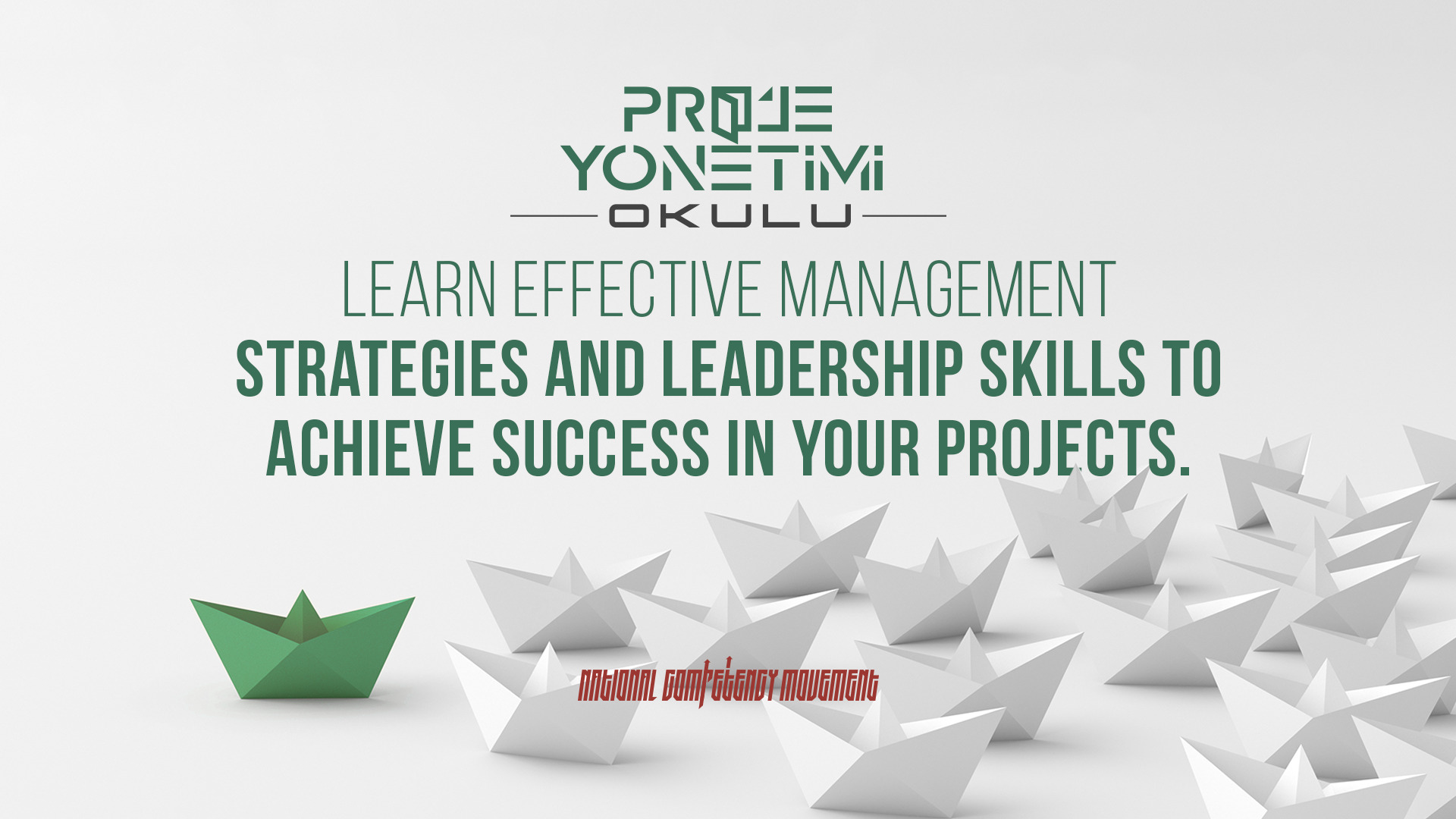
The outputs of Defense Industry projects are often dynamic and interactive complex systems. These projects should be managed in line with certain methodologies outlined by international standards. However, rapidly changing needs and technological developments enforce the application of agile and adaptable methods. The scope of the Project School aims to transfer the knowledge and skills to the participants to ensure the correct planning of the projects as well as the effective implementation of monitoring, control and change management during execution.
Within the scope of the Project Management School, training contents including both theoretical and practical applications will be created by experienced defense sector employees. In the trainings, generic project management processes will be handled in an adapted manner due to the fact that the project outcome is a system. In line with this context System Engineering processes will be used to support the contents. In applicable trainings, project management tools and case studies will be used for a better understanding of the content.
The trainings are intended for the professionals working in defense projects. While the basic level training modules aim to provide a holistic understanding of project management methods and processes, the expert level trainings are designed for the related specific field expertise. The school content addresses all stakeholders in the ecosystem; institutions/organizations carrying out the defense projects, acquisition authority and the public organizations reporting the need which will not only increase competencies but also enable alignment between these stakeholders.
The training programs are designed and implemented with the support of industry professionals. Within this framework, the Expert Advisory Board defines the vision for the Project Managment School and regularly provides insights on the training content.
Expert Advisory Board (EAB) within the Project Management School provides feedback and gives recommendations on the following topics:
Coordinators” within the Project Management School perform the following activities based on the needs of the Defense Industry:
You can create a preliminary request for an existing course by selecting it from the "Courses" list and filling in the relevant sections under the "Request" tab.
You can create a preliminary request for an existing course by selecting it from the "Courses" list and filling in the relevant sections under the "Request" tab.
If the course you need is not in the existing list or requires customization, you can submit the course content, location, and preferred instructor (if any) here.
If the course you need is not in the existing list or requires customization, you can submit the course content, location, and preferred instructor (if any) here.
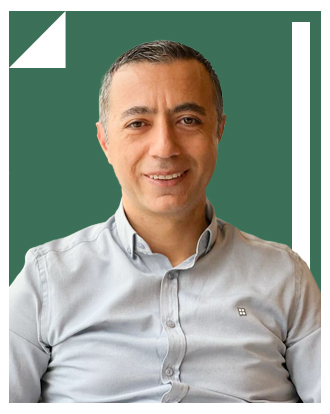
Zafer Çankaya
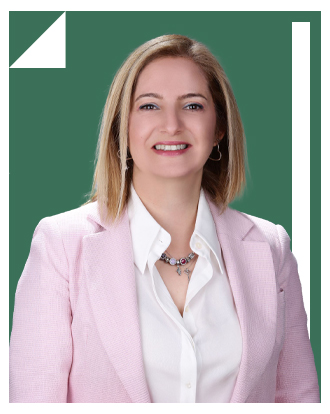
Tuba Akıncılar Tan
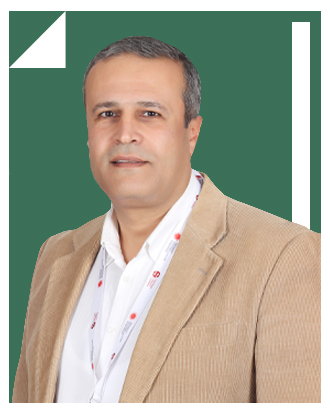
Serkan Taşkın
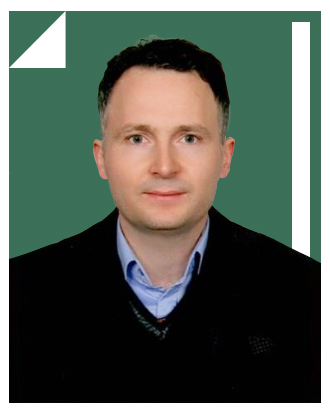
Oğuzhan Öztürk

B. Fırat Dengiz

Tayfur Yaylagül
This course will explain the basic definitions and related concepts of project management and the environment in which projects are carried out.
This course will explain the basic definitions and related concepts of project management and the environment in which projects are carried out. It is aimed to comprehend project management principles which are the basic guidelines for decision making, problem solving and building strategies in projects.
The outcomes of this course are:
This training will be given theoretically in a classroom environment using a whiteboard, projector, computer, and MS Office tools.
No prerequisites.
The training will cover project management process groups within the scope of PMBOK® (Project Management Body of Knowledge) created by the Project Management Institute (PMI) and continuously updated in line with best practices.
The training will cover project management process groups within the scope of PMBOK (Project Management Body of Knowledge) created by Project Management Institute (PMI) and continuously updated in line with the best practices. For cases where the project deliverable is a system, it will also be explained how these processes should be tailored.
The training will be given theoretically in a classroom environment using a whiteboard, projector, computer, and MS Office tools.
PYTS01 training or having at least 2 years of experience in project management.
This course will cover the Agile Project Management approach and its most popular methodology, the Scrum Framework.
Disruptive technologies are rapidly changing the playing field by decreasing the barriers to entry. More mature organizations are increasingly prone to being highly complex and potentially slow to innovate, and lag behind in delivering new solutions to their customers. At this point, agile project management approaches emerge as an alternative method to meet the need quickly and effectively. In this training, Agile Project Management approach and Scrum Framework, the most popular methodology of this approach, will be discussed.
The training will be given theoretically in a classroom environment using whiteboard, projector, computer, and MS Office tools.
No prerequisites.
The outcomes of this course are explained below:
This course aims to present the PMI Disciplined Agile Delivery (DAD) framework, whose goal is to enable better decision making and adaptability in complex environments.
PMI's Disciplined Agile Delivery (DAD) provides a hybrid approach by combining agile methods like Scrum, Kanban, and Lean, with enterprise-level practices such as governance and DevOps. DAD emphasizes tailoring solutions to context by guiding teams through end-to-end project lifecycles, from initiation to delivery. Its goal is to enable better decision-making and adaptability in complex environments. The aim of this training is to present the DAD framework.
The training will be given theoretically in a classroom environment using whiteboard, projector, computer, and MS Office tools.
PYTS03 training or having at least 2 years of experience in agile project management environment.
The outcomes of this course are explained below:
In this training, agile development, systems thinking and lean product development bodies of knowledge within the scope of Scaled Agile Framework (SAFe) will be discussed and SAFe values, principles and practices will be transferred to the participants.
Our development methods must keep pace with an increasingly complex and interconnected world, which is replete with innovations in mobile technologies, big data, social media, and the Internet of Things (IoT). The last few decades have provided three bodies of knowledge that we can use to address these challenges: Agile development, systems thinking, and Lean product development. These bodies of knowledge inform the values, principles, and practices of the Scaled Agile Framework (SAFe). In this training, SAFe methodology will be explained in detail.
The training will be given theoretically in a classroom environment using a whiteboard, projector, computer, and MS Office tools.
PYTS03 training or having at least 2 years of experience in agile project management environment.
The outcomes of this course are explained below:
In this training, program structure, characteristics and basic principles of program management will be given and major performance domains with life cycle activities will be discussed.
The management methodology of programs is different than projects. Outcomes delivered by a program’s components contribute to the delivery of the program’s intended benefits and, as necessary, to refinement of the strategy of the program and its components. This can be possible through iterative and dynamic management.This course will cover the structure and characteristics of programs and the basic principles of program management.
The training will be given theoretically in a classroom environment using a whiteboard, projector, computer, MS Office tools.
PYTS02 training or having at least 5 years of experience in project management environment.
The outcomes of this course are explained below:
In this training, while the risk management processes put forward by PMI will be discussed, risk areas arising from the system life cycle phase characteristics will also be presented.
Risk management in projects is usually handled through processes independent of project delivery. However, system development projects have a different characteristic due to the system life cycle approach. In this training, while the risk management processes put forward by PMI will be discussed, risk areas arising from the system life cycle phase characteristics will also be presented.
This training will be given theoretically in a classroom environment using a whiteboard, projector, computer, MS Office tools.
-
The outcomes of this course are explained below:
In this training, Work Breakdown Structure (WBS) development in general and WBS analysis in line with MIL STD 881 specifically for the requested system will be taught.
The WBS evolves through an iterative consideration of the project’s purpose and objectives, functional/performance design criteria, project scope, technical performance requirements, and other technical attributes. The WBS can assist the project manager and stakeholders in developing a clear vision of the end product(s) of the project and of the overall process by which it will be created. In this training, WBS development in general and WBS analysis in line with MIL STD 881 specifically for the requested system will be taught.
This training will be given theoretically in a classroom environment using whiteboard, projector, computer, and MS Office tools.
PYTS02 training or having at least 4 years of experience in project management.
The outcomes of this course are explained below:
In this training, project scheduling methods will be conveyed to the participants with practical applications.
A schedule model rationally organizes and integrates various project components (e.g., activities, resources, and logical relationships) to optimize the information available to the project management team and facilitate the likelihood of a successful project completion within the approved schedule baseline. In this training, project scheduling methods will be conveyed to the participants with some applications.
This training will be given theoretically in a meeting or briefing room style classroom environment using whiteboard, projector, computer, MS Office tools. In addition to the theoretical training, it will also include an application (workshop) for some parts of the training.
PYTS02 training or having at least 4 years of experience in a project management environment.
The outcomes of this course are explained below:
In this training, the requirements for establishing PMOs in organizations, establishment models, benefits and functions will be discussed in detail through case studies.
The Project Management Office (PMO) is a “tool” that can serve to further improve the benefits, efficiency and success of projects, but also the know-how of employees in companies. In this training, the requirements for establishing PMOs in organizations, establishment models, benefits and functions will be discussed in detail through case studies.
This training will be given theoretically in a meeting or briefing room style classroom environment using whiteboard, projector, computer, and MS Office tools. Additionally, case studies will provide practical insights.
PYTS02 training or at least 4 years of experience in project management.
The outcomes of this course are explained below:
This course will brief the leadership skills and styles, show how to select, build and lead a project team and expain key leadership competences.
It is essential that the project manager understands the characteristics and features of project management leadership to be able to direct and manage the team effectively. The project manager’s challenge is to strike a balance between the appropriate type of leadership skills and styles, and the level of project management systems – both are required for project success. This course will brief the leadership skills and styles, show how to select, build and lead a project team and expain key leadership competences.
This training will be conducted in a theoretical classroom environment using whiteboard, projector, computer, and MS Office tools.
PYTS02 training or at least 4 years of experience in project management.
The outcomes of this course are explained below:
This course aims to provide the methodology for establishing an effective governance mechanism for projects, programs and portfolios within the framework of PMI standards.
Implementation of an effective portfolio, program, and project governance framework within an organization can be challenging due to factors such as increasing business complexities, regulatory requirements, globalization, and rapid changes in technology and business environments. An effective governance framework can help to ensure an organization’s alignment of strategy and its subsequent execution by providing appropriate oversight, leadership, and guidance. This course aims to provide the methodology for establishing an effective governance mechanism within the framework of PMI standards.
This training will be conducted theoretically in a meeting or briefing room style classroom environment using whiteboard, projector, computer, and MS Office tools.
PYTS02 training or at least 4 years of experience in project management.
The outcomes of this course are explained below:
In this training, it is aimed to gain the expertise that will enable projects to produce maximum value output by addressing cost and value management together.
Estimating, controlling, and managing project costs provide an essential discipline for maximizing a team’s operational efficiency while ensuring that expenditures do not rapidly outstrip original budgets. Likewise, the better we can understand what exactly “value” means for the project organization, the customer, the various project stakeholders, and other key constituents, the better able we will be to create projects of essential worth. In this training, it is aimed to gain the expertise that will enable projects to produce maximum value output by addressing cost and value management together.
This training will be given theoretically in a meeting or briefing room style classroom environment using a whiteboard, projector, computer, and MS Office tools.
PYTS02 training or at least 4 years of project management experience.
This training will provide methods for optimizing results in R&D through the use of structured processes that come from the project management field, along with a few other key complementary disciplines.
The challenge of applying project management methodology to R&D is in the inherent nature of R&D itself, which typically requires a highly creative and nonlinear path to successful outcomes. This training will provide methods for optimizing results in R&D through the use of structured processes that come from the project management field, along with a few other key complementary disciplines.
This course combines theoretical lectures with practical case studies, delivered in a classroom environment using whiteboards, projectors, and digital tools. Participants will engage in interactive discussions and hands-on applications.
Completion of PYTS02 training or at least 4 years of experience in project management.
This course aims to give participants the basic principles, standards, processes and best practices of project management and to provide an integrated and comprehensive training in preparation for the PMI PMP® certification exam.
This training aims to teach the participants the basic first home standards, processes and best practices of project management and to provide an integrated and comprehensive training to the participants in the preparation process for the PMP®️ (Project Management Professional) certification offered by PMI. Thus, the training aims to improve the knowledge and skills of the participants in project management, to take part in their professional lives more effectively and consciously, and to make a significant contribution to their careers as competent and certified professionals in the field of project management.
The training is conducted in a classroom environment using whiteboard, projector, and digital tools to facilitate theoretical and interactive learning.
At least 3 years of experience in project management.
This course aims to give participants the basic principles, standards, processes and best practices of program management and to provide an integrated and comprehensive training in preparation for the PMI PgMP® (Program Management Professional) certification exam.
This training aims to give the basic principles, standards, processes and best practices of program management to the participants in the preparation process for the PgMP®️ (Program Management Professional) certificate offered by PMI, and to provide an integrated and comprehensive training to the participants in the preparation process for the PgMP®️ certificate. Thus, the training aims to improve the knowledge and skills of the participants in program management, to take part in their professional lives more effectively and consciously, and to make a significant contribution to their careers as competent and certified professionals in the field of program management.
This training will be given theoretically in a meeting or briefing room style classroom environment using a whiteboard, projector, computer, MS Office tools.
At least 5 years of experience in project management
This course offers a deep dive into the world of SAFe®, a proven framework for scaling agile practices in large organizations and preparing participants for the SAFe® Agilist certification exam.
In today's fast-paced business world, the ability to quickly adapt and respond to market changes is crucial. SAFe®️ provides a structured yet flexible framework for organizations to accelerate their Agile journey, ensuring faster delivery, higher quality, and improved team collaboration. This course offers a deep dive into the world of SAFe®️, a proven framework for scaling Agile across large organizations and preparing participants for the SAFe® Agilist certification exam.
This training will be given theoretically in a meeting or briefing room style classroom environment using a whiteboard, projector, computer, MS Office tools.
At least 3 years of experience in agile project management.
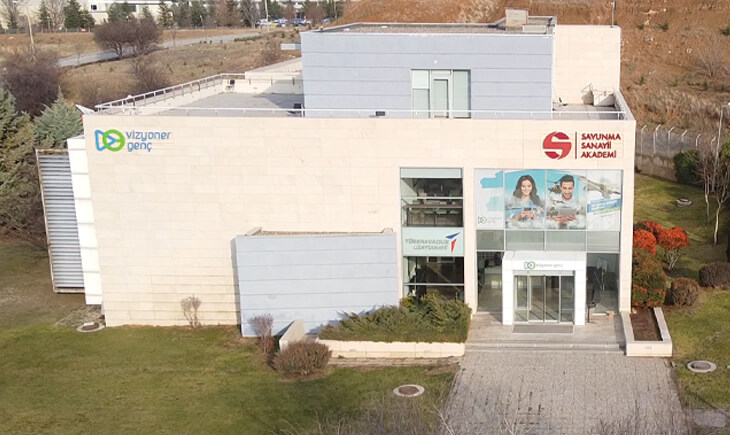
Savunma Sanayi Akademi
Üniversiteler Mahallesi ODTÜ TEKNOKENT, 06800, Çankaya/Ankara/Türkiye
+90 312 424 19 62
akademi@ssb.gov.tr